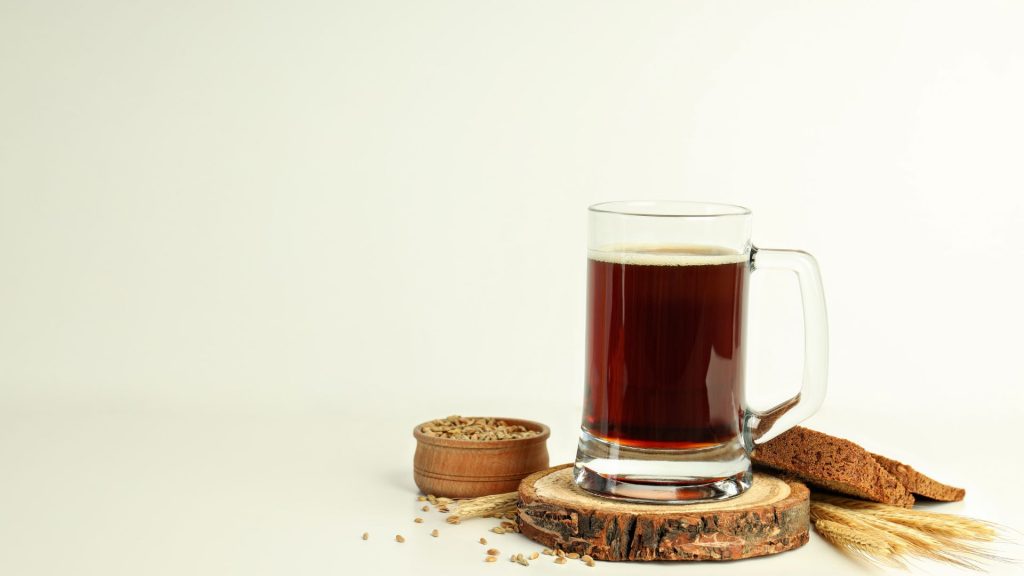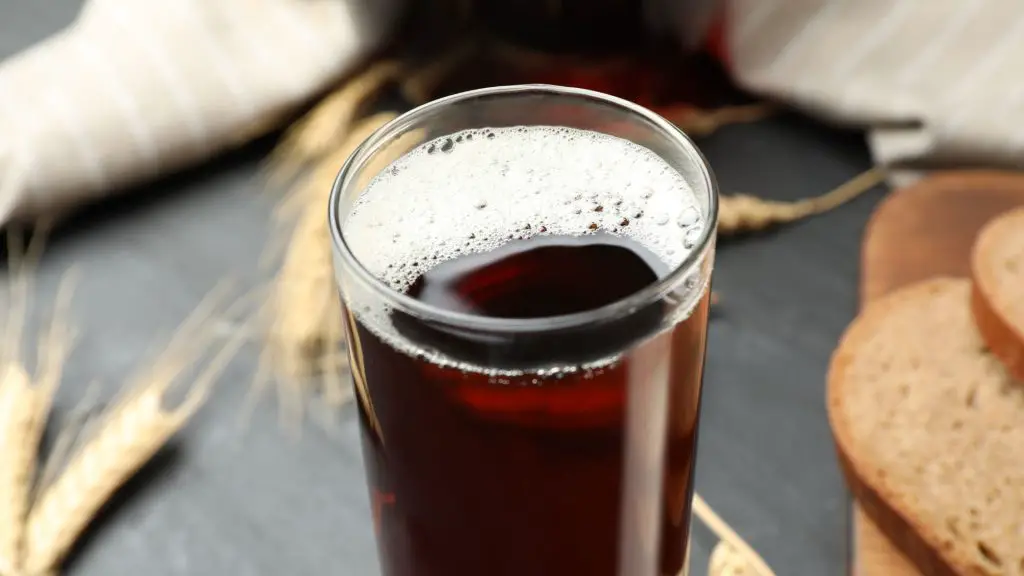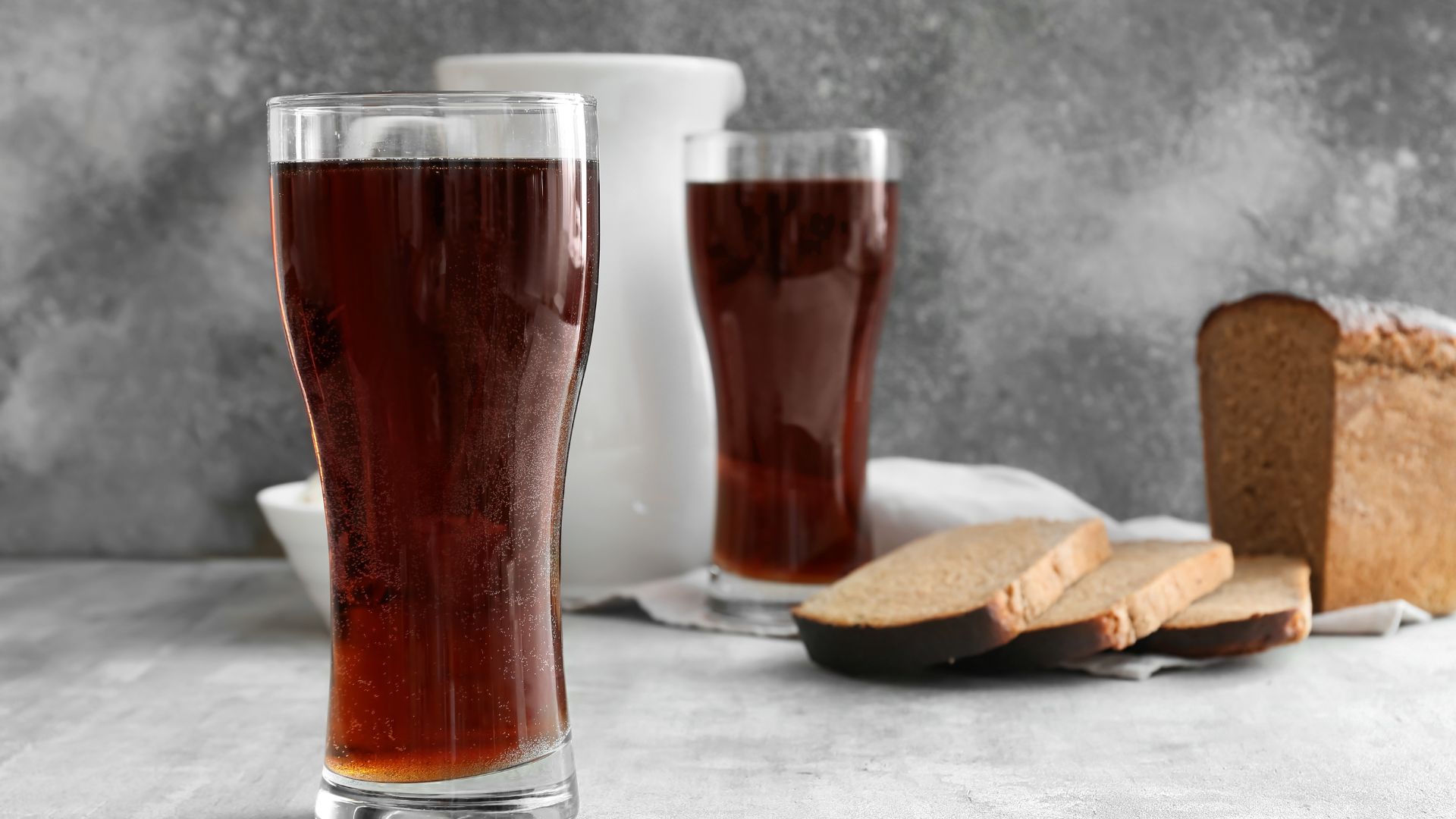Kvass is a traditional fermented beverage that has been enjoyed for centuries in Eastern Europe, but is Kvass healthy?
It is made by fermenting bread or grains with water, sugar, and sometimes fruits or herbs. The result is a slightly sour, fizzy drink that is often described as having a taste similar to beer or kombucha.
In recent years, the health benefits of Kvass have gained attention, and many people are turning to this beverage as a healthy alternative to sugary drinks.
But is Kvass healthy, as some claim? In this article, we will explore the nutritional content of Kvass, its potential health benefits, and some concerns about consuming this beverage.
What is Kvass?

Kvass has a long history in Eastern Europe, where it has been consumed for centuries as a refreshing drink. It was originally made by fermenting stale bread with water, sugar, and sometimes fruit or herbs. Today, Kvass is made with a variety of ingredients, including rye bread, beets, and even carrots.
Kvass is known for its slightly sour taste, which comes from the fermentation process. The drink is often compared to beer or kombucha, but unlike those beverages, Kvass typically has a low alcohol content. In fact, most commercially available Kvass contains less than 1% alcohol, making it a non-alcoholic drink.
Nutritional Content of Kvass

Kvass is a relatively low-calorie beverage, with most brands containing around 50-60 calories per 8-ounce serving. It is also a good source of vitamins and minerals, particularly B vitamins, which are important for energy production and brain function.
One of the most beneficial aspects of Kvass is its probiotic content. During the fermentation process, beneficial bacteria are produced, which can help support a healthy gut microbiome. A healthy gut microbiome has been linked to numerous health benefits, including improved digestion, better immunity, and even a reduced risk of chronic diseases like obesity and diabetes.
Health Benefits of Kvass: Is Kvass Healthy?

The probiotic content of Kvass is just one of the potential health benefits of this beverage. Some research suggests that Kvass may have other health benefits as well.
For example, a study published in the Journal of Nutrition found that consuming Kvass improved cholesterol levels in rats fed a high-cholesterol diet. The study authors concluded that Kvass may have potential cardiovascular benefits in humans, although more research is needed to confirm this.
Another study published in the International Journal of Food Science and Nutrition found that consuming Kvass may help reduce inflammation in the body. Inflammation is a contributing factor to many chronic diseases, so reducing inflammation could have significant health benefits.
Other potential health benefits of Kvass include improved digestion, better immune function, and even improved mood. However, more research is needed to fully understand the potential health benefits of this beverage.
Potential Kvass Disadvantages

While Kvass is generally considered safe to consume, there are some concerns that consumers should be aware of. One potential issue is the high sugar content of some commercially available Kvass brands. Some Kvass contains added sugars, which can contribute to weight gain and other health problems if consumed in excess.
Another concern is the potential for mold or bacterial contamination in homemade Kvass. Because Kvass is made through a fermentation process, it is possible for harmful bacteria or mold to grow if the process is not done correctly. It is important to follow safe food handling practices when making Kvass at home to minimize the risk of contamination.
Finally, Kvass may not be suitable for everyone. Because it is a fermented beverage, it may trigger symptoms in individuals with certain digestive disorders, such as irritable bowel syndrome (IBS) or inflammatory bowel disease (IBD).
Some people ask, "Is Kvass alcoholic"... YES. Kvass contains small amounts of alcohol, which may be a concern for some individuals, such as pregnant women or people with a history of alcohol addiction.
Furthermore, Kvass may interact with certain medications, particularly those that affect the liver or are metabolized by the liver.
It is also important to note that the health benefits of Kvass are not well-established, and more research is needed to fully understand the potential risks and benefits of this beverage.
Conclusion

Kvass is a traditional fermented beverage that has been enjoyed for centuries in Eastern Europe. It is low in calories and a good source of vitamins and minerals, particularly B vitamins. The probiotic content of Kvass may also provide health benefits, such as improved digestion and better immune function.
However, there are some concerns about consuming Kvass, particularly regarding its sugar content and the potential for mold or bacterial contamination in homemade Kvass. Kvass may also not be suitable for everyone, particularly pregnant women, individuals with certain digestive disorders, and those taking certain medications.
Overall, while Kvass may provide some health benefits, it is important to consume it in moderation and to be aware of the potential risks associated with this beverage. As always, it is recommended to consult with a healthcare provider before adding any new foods or beverages to your diet.
